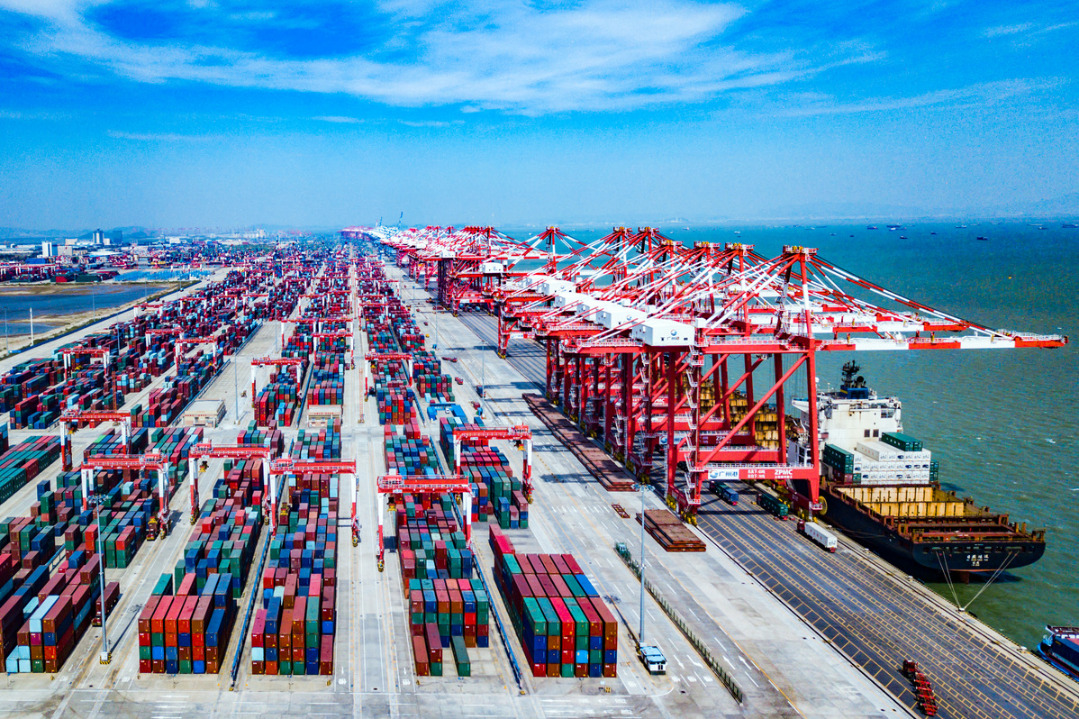Ultimately, DPP will be abandoned by the US


The rising tensions between Washington and Beijing have injected a false sense of importance among Taiwan authorities, as many foreign media reports have said the island seems set to play an increasingly vital role in the region's political developments.
To push its "pro-independence" agenda, Taiwan's ruling Democratic Progressive Party is happy to be used as a pawn by the United States in the latter's game to check the peaceful rise of the Chinese mainland. In fact, for years, the collusion between Washington and the island has delayed the process of national reunification, for which people across the Straits are paying a price.
Whether and when the US will play the "Taiwan card" depends on its policy toward the mainland and the comparative strengths of the two sides. But the "Taiwan card" has been fast losing its effectiveness with the rising economic and military strength of the mainland.
As for the US administration, Taiwan has become even more important in recent years, for it believes the island can strengthen its hand in the strategic competition it has launched against Beijing. The US believes the rise of the mainland, leading to changes in the global landscape and international rules, will undermine its hegemony and national interests.
Given the differences between the two sides in terms of ideology, values, and political and social systems, Washington has been trying to trigger a new Cold War against Beijing. And unlike the "trust but verify" policy adopted against the Soviet Union during the Cold War, the US administration is using a "distrust and verify" policy against China, as US Secretary of State Mike Pompeo said in his speech at the Richard Nixon Presidential Library in California on July 23.
Leveraging its advantages, Washington has intensified its attacks against Beijing in recent years, using the "Taiwan card" more frequently. And by labeling Beijing a "strategic rival", Washington has strengthened its nexus with the DPP, in order to check the mainland's rise.
Ever since taking office in 2016, island leader Tsai Ing-wen and her administration have been trying to de-Sinicize Taiwan society and sever the historical and cultural links between the two sides of the Straits to advance their nefarious agenda of "Taiwan independence". More recently, the Tsai administration banned internet-based platform company Tencent and the world's leading online and video streaming website iQiyi, both mainland companies, from the island.
And to continue using the DPP as a tool to curb the mainland's rise, the US has in recent years enacted a series of acts including the Taiwan Travel Act (which allows US officials at all levels to visit the island), Taiwan Assurance Act of 2019 (which green lights the regular sale of arms to the island) and the Taipei Act (aimed at helping strengthen the island's "diplomatic" relationships and partnerships around the world) in order to create an illusion that Washington will "normalize" relations with Taiwan and send its military to "defend" the island in case a war breaks out.
By passing such acts, dispatching US officials to the island and backing the "pro-independence" DPP, the US has blatantly interfered in China's internal affairs, and violated the Three Joint Communiqués signed by Beijing and Washington.
Yet despite the deepening ties between Washington and the DPP, the mainland's growing comprehensive national strength, particularly its military strength, has significantly marginalized the island's role in Sino-US strategic competition.
Besides, the island's strategic importance in the two powers' competition will further decline as the mainland becomes stronger on the economic and military fronts. And once that happens, the US is bound to abandon Taiwan.
The author is a professor at the Taiwan Research Center of Xiamen University.
The views don't necessarily represent those of China Daily.


































